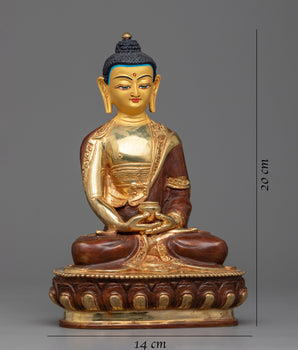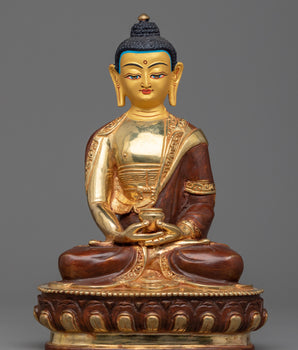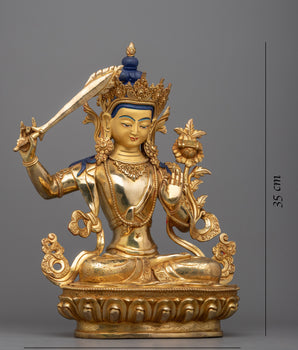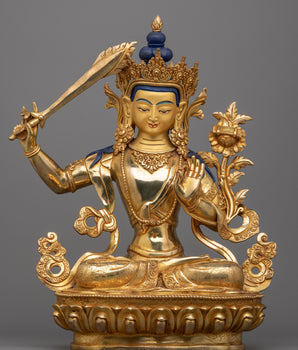Buddhist Masters Statue
Buddhist Master: Guiding Light on the Path to Enlightenment
Background and Significance:
Buddhist masters, also known as "Gurus" or "Teachers," hold a revered place in Buddhist cultures, serving as guides and sources of spiritual wisdom. They are entrusted with the transmission of the Dharma, the teachings of Buddhism, from one generation to the next. The origin of the concept of Buddhist masters can be traced back to the Buddha himself, who established monastic communities where experienced monks and nuns mentored those on the path to enlightenment.
Buddhist masters are of paramount importance due to their ability to offer practical and insightful guidance in matters of Buddhist practice. They provide a direct link to the Buddha's teachings and serve as living exemplars of the Dharma. These masters often play a pivotal role in guiding their students through the challenges encountered on their spiritual journey, facilitating deep insight and transformation.
Attributes and Role:
Buddhist masters are distinguished by their profound understanding of Buddhist doctrine and their capacity to lead others toward enlightenment. Their wisdom, compassion, and patience enable them to help students overcome obstacles and delusions.
The role of a Buddhist master encompasses several responsibilities, including:
- Transmission of Teachings: Masters ensure the continuity of the Buddhist tradition by imparting the Dharma through formal teachings, dialogues, and one-on-one guidance.
- Spiritual Mentorship: They serve as spiritual mentors, guiding students through the intricacies of Buddhist practice, meditation, and ethical conduct.
- Ritual and Ceremony: Buddhist masters often lead significant Buddhist rituals, ceremonies, and empowerments to deepen their students' connection with the Dharma.
- Community Building: These teachers help foster a sense of belonging among their followers, creating an environment conducive to spiritual growth.
Associated Stories and Beliefs:
Throughout Buddhist history, numerous great gurus have left a lasting legacy. One notable example is the relationship between the Indian guru Nagarjuna and his disciple Aryadeva. Nagarjuna, a key figure in the development of Mahayana Buddhism, imparted essential lessons on compassion and emptiness to Aryadeva. This master-disciple connection serves as an exemplar of how lineage and wisdom are passed down in Buddhism.
In contemporary Tibetan Buddhism, the Dalai Lama is a renowned Buddhist master. He assumes the roles of a teacher and spiritual guide as the head of Tibetan Buddhism. His writings, lectures, and public appearances have had a profound impact on the global understanding of Buddhism and its principles.
Buddhist masters play a crucial role in preserving and disseminating the teachings of Buddhism, serving as torchbearers of the Dharma. Their wisdom, compassion, and guidance assist individuals on their spiritual journey. The master-disciple relationship is a fundamental aspect of the Buddhist tradition, enabling the continual sharing of profound insights and the cultivation of inner wisdom. Ultimately, Buddhist masters illuminate the path for countless others seeking spiritual awakening and transformation by bridging the gap between the seeker and the journey to enlightenment.
Your cart is currently empty.
Start Shopping



























